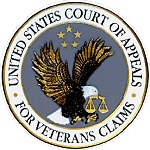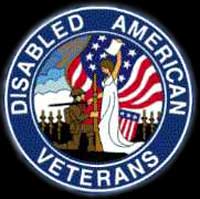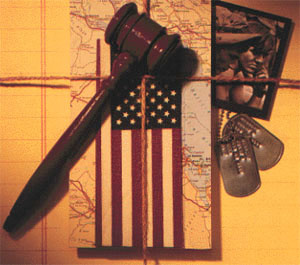 In my articles regarding questions surrounding Agent Orange on Guam, No One has proven that Agent Orange was NOT used on Guam, I noted that we had reviewed over 156 VA Claims in the Appeals Process and found some very unsavory trends where either the VA has screwed up repeatedly either at Regional Office level or even within United States Court of Appeals for Veterans Claims (CAVC).
In my articles regarding questions surrounding Agent Orange on Guam, No One has proven that Agent Orange was NOT used on Guam, I noted that we had reviewed over 156 VA Claims in the Appeals Process and found some very unsavory trends where either the VA has screwed up repeatedly either at Regional Office level or even within United States Court of Appeals for Veterans Claims (CAVC).
These unjustified positions include (1) not giving the Veteran benefit of a doubt when the presence and exposure to Agent Orange cannot be confirmed or denied by the Department of Defense, (2) Repeatedly remanding appeals back to lower level to do over again for they rarely get it right the first time, (3) Unqualified medical personnel making decisions that result in denials based on unjustified reasons.
 Let me provide just an example of a case on Appeal that reflects just how much the Board of Veterans Appeals (BVA) and CAVC give Veterans the run around until they die, and then what the Disabled American Veterans have said about this.
Let me provide just an example of a case on Appeal that reflects just how much the Board of Veterans Appeals (BVA) and CAVC give Veterans the run around until they die, and then what the Disabled American Veterans have said about this.
Although we use only one case to make a point, this type of never ending REMANDING was the norm in most of the 156 VA appeals reviewed.
ROBERT L. HANAFIN, Major, U.S. Air Force-Retired, VT News
Citation Nr: 0836119
Decision Date: 10/21/08
Archive Date: 10/27/08
DOCKET NO. 04-06 907)On appeal from the Department of Veterans Affairs Medical and Regional Office Center in Wichita, Kansas
THE ISSUE
Entitlement to service connection for diabetes mellitus, typeII.
REPRESENTATION
Veteran represented by: Disabled American Veterans
WITNESS AT HEARING ON APPEAL Veteran
ATTORNEY FOR THE BOARD Patricia A. Talpins, Associate Counsel
VT Editorial Note: In most of the 156 appeals reviewed,we note that the VA has an attorney to take on a Veteran who cannot afford an attorney, or prefers not to have legal assistance present with him/her before the board. THE DECK IS STACKED AGAINST THE VETERAN.
INTRODUCTION
This matter comes before the Board of Veterans’ Appeals (“BVA” or “Board”) on appeal from an August 2003 rating decision of the Department of Veterans Affairs (“VA”) Regional Office (“RO”) in Wichita, Kansas in which the RO denied, amongst other issues, service connection for diabetes mellitus. The veteran, who served on active duty from June 1958 to June 1962, appealed that decision to the BVA. Thereafter, the RO referred the case to the Board for appellate review.
In an August 2005 decision, the Board denied the veteran’s claim of entitlement to service connection for diabetes mellitus. The veteran appealed that issue to the United States Court of Appeals for Veterans Claims (the “Court”).
In September 2006, the Court vacated and remanded [DELAYED] the portion of the Board’s August 2005 decision concerning the denial of his diabetes mellitus claim in light of a Joint Motion to Remand submitted by the parties. See September 2006 Joint Motion for Remand; September 2006 Court order. As such, the appeal as to this issue was returned to the Board for compliance with the instructions set forth in the September 2006 Joint Motion to Remand.
Thereafter, in a September 2007 decision, the Board remanded [DELAY A SECOND TIME] the veteran’s diabetes mellitus claim for additional development [DELAY]. Although the case has been returned to the Board for further review, the Board observes that the development requested in its prior decision has not been completed [BY THE VA REGIONAL OFFICE NOT THE VETERAN FILING THE CLAIM]. As such, the Board finds that the appeal must unfortunately be REMANDED once again[DELAYED A THIRD TIME]to the RO via the Appeals Management Center (“AMC”) in Washington, DC.
Prior to proceeding with its REMAND instructions below, the Board observes for the record that the claims file contains a statement from the veteran dated in December 2007 in which the veteran disagrees with the Board’s September 2007 denial of service connection for left ear hearing loss. As the September 2007 BVA decision is a final decision, the Board is uncertain as to whether the veteran seeks reconsideration via his December 2007 letter, and if so, the basis for his request. 38 C.F.R. §§ 20.1000, 20.1100. As such, the Board REFERS this matter to the RO for clarification.
REMAND [DELAY]
Unfortunately, a review of the record with respect to the veteran’s claim of entitlement to service connection for diabetes mellitus, type II, discloses a need for further development prior to final appellate review.
As discussed in previous decisions, the veteran contends he is entitled to service connection for diabetes mellitus he believes manifested as a result of exposure to herbicides and chemicals while stationed in Guam in service. See record of military assignments; service personnel records; April 2005 BVA hearing transcript, pgs.9-12. Specifically, the veteran testified [UNDER OATH] before the Board that he worked in a facility at Andersen Air Force Base in Guam from August 1959 to January 1961 around brightly colored barrels that smelled like chemicals; barrels he believes contained Agent Orange. In addition, the veteran asserts exposure to jet fuel and various other chemicals while on base (to include chemicals used in a project in which he resurfaced elevators) that he believes manifested or contributed to his development of diabetes mellitus. Id.
As mentioned in the Introduction above, the veteran’s claim was remanded in September 2007 for the purpose of researching
(1) whether the veteran was actually exposed to Agent Orange through personal contact with aircraft in Guam that carried that chemical or through his proximity to unmarked orange and red barrels of unidentified chemicals during his service duties and
(2) whether Agent Orange or other herbicides were stored, tested, used or destroyed in Guam during the veteran’s service there. As part of these efforts, the RO was also directed to investigate whether chemicals other than Agent Orange were stored, tested, used or destroyed in Guam during the veteran’s service. September 2007 Board decision, pgs. 12-13. If the evidence indicated that such exposure occurred, the veteran’s case was then to be referred to a VA examiner for a medical opinion as to whether it is at least as likely as not that the veteran has diabetes mellitus that is due to exposure to chemicals in service or is otherwise related to the veteran’s military service. Id.,p. 13.
TREND IN REMANDS [DELAYS] BASED ON VA REGIONAL OFFICE FAILURE TO COMPLY WITH CAVA DIRECTIONS, OR USE OF UNQUALIFIED VA MEDICAL PERSONNEL
A review of the current evidence contained in the claims file reveals that the RO completed the first portion of the Board’s directives. Specifically, the Board observes that the claims file contains correspondence from the Air Force Historical Research Agency dated in March 2008 that indicates its research revealed the Agent Blue, White, Orange and others for herbicide missions were not used, stored or destroyed at Anderson Air Force Base in Guam. See March 2008 email correspondence, p. 1.
VT Editorial Comment: The position of the Air Force Historical Research Service is that there have been no records to confirm or deny the presence of Agent Orange or any other toxic herbicides present on Guam that IS NOT the same as spinning the DoD response to say that there was not storage, testing, destruction, or use of Agent Orange on Guam.
In terms of other chemicals, the Air Force Historical Research Agency reported that the specific unit histories at Anderson Air Force Base do not document such issues as chemical use on the base (as such use was seen as a routine issue at the time of the veteran’s service). Id. However, the agency reported that “with any active air base, one can imagine hydraulic fluid, jet fuel, various rated octane gasoline, oil, lubricants, paint thinners, mineral spirits and all other industrial types of chemicals would have been present at the base.” Id.
In light of the March 2008 response regarding chemical use at Anderson Air Force Base during the veteran’s period of service, the RO appropriately referred the veteran’s claims file to a VA examiner for a medical opinion as to the likelihood of whether the veteran’s diabetes mellitus is related to chemical exposure in service. See March 2008 medical opinion request form.
THE MEDICAL OPINION RENDERED BY AN UNQUALIFIED VA MEDICAL EMPLOYEE IS YET ANOTHER REASON FOR DELAY
In a March 2008 medical opinion, prepared by an Advanced Registered Nurse Practitioner (“ARNP”) and co-signed by a Medical Doctor (“MD”), the ARNP noted her review of the veteran’s claims file, to include his service medical records and private medical records. March 2008 VA medical opinion, p. 1.
Thereafter, she opined that in light of the information provided by the Air Force Historical Research Agency that Anderson Air Force Base showed no evidence of herbicide storage (Agent Blue, White, Orange or any other), the veteran’s diabetes mellitus was not caused by exposure to any of those stated agents from that source. Id. In regards to the question of whether the veteran’s diabetes mellitus is related to exposure to chemicals consisting of hydraulic fluid, jet fuel, various rated octane gasoline, oil, lubricants, paint thinners, mineral spirits and/or other
industrial chemicals, the ARPN stated that “there has been no known VA research linking DM2 [diabetes mellitus, type II]
to those possible exposures.” Id., p. 2.THE NURSE PRACTITIONER CAN’T MAKE UP HER MIND
However, there are two separate computer print-outs in the file as to the 2008 opinion. In one report, the ARNP states that “in regard[s] to a link between those chemicals and DM2 [diabetes mellitus, type II], it was beyond the scope of this practitioner’s expertise to state the likelihood of a nexus.” Id.
Such a statement is missing from the other copy of the report. Without knowing which report was meant to reflect the entirety of the medical opinion, the Board has no choice but to remand the claim to the RO for compliance with its previous directives. See Stegall v. West, 11 Vet. App. 268 (1998).
Accordingly, the case is REMANDED [DELAYED A FOURTH TIME] for the following action:
The veteran’s claims file should be referred to a VA examiner with the medical knowledge and expertise to provide a medical opinion [ONCE AGAIN INCOMPETENCE AT REGIONAL OFFICE OR VA HOSPITAL LEVEL] as to whether it is at least as likely as not [GIVE THE VETERAN THE BENEFIT OF A DOUBT] that the veteran’s diabetes mellitus is related to his exposure to chemicals in service (to include hydraulic fluid, jet fuel, various rated octane gasoline, oil, lubricants, paint thinners, mineral spirits and other industrial chemicals) or is otherwise related to the veteran’s military service.
If the examiner is unable to respond to this question without examination of the veteran, such examination should be afforded the veteran. A rationale should be provided for the expressed opinion.
When the development requested has been completed, the case should again be reviewed by the RO on the basis of the additional evidence. If the benefit sought is not granted, the veteran and his representative should be furnished a Supplemental Statement of the Case and be afforded a reasonable opportunity to respond before the record is returned to the Board for further review.
The purpose of this REMAND is to obtain additional evidence and to comply with a Court order; and the Board does not intimate any opinion as to the merits of the case, either favorable or unfavorable, at this time. The veteran is free to submit any additional evidence and/or argument he desires to have considered in connection with his current appeal. Kutscherousky v. West, 12 Vet. App. 369 (1999). No action is required of the veteran unless he is notified.
This claim must be afforded expeditious treatment. [HOW MANY TIMES HAS THAT LINE BEEN RENDERED THEN IGNORED?] The law requires that all claims that are remanded by the Board of Veterans’ Appeals or by the United States Court of Appeals for Veterans Claims for additional development or other appropriate action must be handled in an expeditious manner.See 38 U.S.C.A. §§ 5109B, 7112 (West Supp. 2008).
_________________________________________________
MICHELLE KANE
Chief Veterans Law Judge, Board of Veterans’ AppealsUnder 38 U.S.C.A. § 7252 (West 2002), only a decision of the Board of Veterans’ Appeals is appealable to the United States Court of Appeals for Veterans Claims.
This remand is in the nature of a preliminary order and does not constitute a decision of the Board on the merits of your appeal. 38 C.F.R. § 20.1100(b) (2007).
Emphasis added by VT.
Readers what you see above IS NOT an isolated case nor worse case scenario it IS the norm at both BVA and CAVC that calls for the resignation of all political appointees and entrenched upper and middle managers within those offices to be replaced by MILITARY VETERANS.
This is what the DAV had to say about both the BVA and CAVC under the Bush and Obama administrations.
 In a related story that appeared in the most recent magazine issue of the Disabled American Veterans (DAV), Chief Justice Acknowledges It, But DAV Saw It First – Some Veterans Given Runaround at BVA and CAVC
In a related story that appeared in the most recent magazine issue of the Disabled American Veterans (DAV), Chief Justice Acknowledges It, But DAV Saw It First – Some Veterans Given Runaround at BVA and CAVC
According to DAV, in a recent oral argument at the Supreme Court, Chief Justice John Roberts expressed shock at the government’s admission that in litigating with veterans about their benefits, VA routinely takes a position that is unjustified.
In other words, the government sometimes makes veterans jump through unnecessary hoops to obtain benefits to which they are entitled by virtue of their service.
The exchange between the Chief Justice and the government lawyer is remarkable:
Chief Justice Roberts: Well, that’s really startling, isn’t it? In litigating with veterans, the government more often than not takes a position that is substantially unjustified?
Mr. Yang (government attorney): It is an unfortunate number, Your Honor. And it is—it’s accurate. (emphasis added).
The highest ranking judicial official in our nation now knows what DAV [and a few other Veterans Service Organizations] saw two years ago: that veterans receiving denials at the Board of Veterans Appeals need more help than ever in fighting bad decisions.
That is why DAV decided to do something about it. In 2008, DAV changed their strategy for litigating cases at the United States Court of Appeals for Veterans Claims (CAVC).
 As the DAV fought tooth and nail to prevent Veterans from gaining access to legal representation at the CAVC, including opposing legislation in Congress that would expand legal access, for two decades, DAV had operated a top-notch office to serve veterans at the court. It was, in essence, a mini law firm inside DAV staffed by non-lawyer advocates as well as lawyers.
As the DAV fought tooth and nail to prevent Veterans from gaining access to legal representation at the CAVC, including opposing legislation in Congress that would expand legal access, for two decades, DAV had operated a top-notch office to serve veterans at the court. It was, in essence, a mini law firm inside DAV staffed by non-lawyer advocates as well as lawyers.
But things changed two years ago. Thus, DAV changed their opposition to Veterans having access to legal representation to being an advocate for such access to attorneys and legal aid, so that no Veteran has to face the CAVC alone.
It remains to be seen if DAV desires to instead maintain control over such access.
“It became apparent to us that we needed to ramp up the number of veterans we could help at the court,” said National Adjutant Arthur Wilson, “and I tasked our National Service Department and our General Counsel’s office with finding a way to do it.”
What DAV did was to assemble a small group of law firms that review BVA denials issued to DAV clients and offer representation to deserving veterans in as many cases as possible.
“We’ve already doubled the number of veterans receiving DAV-facilitated representation,” General Counsel Christopher Clay revealed.
National Service Director Randy Reese added that “our short-term goal—for the next two or three years—is to double our current number again. It’s a big challenge, but the law firm partners we have are dedicated and committed to the cause. Even better, all of the representation at the CAVC is just as you would expect —expertly handled and free of charge.”
SOURCE: DAV Magazine May/June 2010, page 9 at http://www.dav.org/news/Magazine.aspx
VETERANS TODAY EDITORIAL COMMENT: As several lawyers representing Veterans before the CAVC, plus archives of various Veterans’ groups advocating better access to attorneys for Vets (Veterans for Common Sense comes to mind) confirm, the DAV was among the traditional mainstream VSOs that opposed enhancing legal assistance for Veterans before the CAVC for the DAV, and other mainstream VSOs, want to be able to continue CONTROLLING that access. It is GREAT to see that DAV may finally be coming around, and I’m now PROUD to be a Life Member.
DAV SAYS “NO” TO ATTORNEYS REPRESENTING VETERANS IN CLAIMS PROCESS — And, an attorney says “NO” to the DAV.
http://www.vawatchdog.org/old%20newsflashes%20JUN%2006/newsflash06-08-2006-8.htm
Robert L. Hanafin, Major, U.S. Air Force-Retired, VT News
Life Member, Disabled American Veterans
Readers are more than welcome to use the articles I’ve posted on Veterans Today, I’ve had to take a break from VT as Veterans Issues and Peace Activism Editor and staff writer due to personal medical reasons in our military family that take away too much time needed to properly express future stories or respond to readers in a timely manner.
My association with VT since its founding in 2004 has been a very rewarding experience for me.
Retired from both the Air Force and Civil Service. Went in the regular Army at 17 during Vietnam (1968), stayed in the Army Reserve to complete my eight year commitment in 1976. Served in Air Defense Artillery, and a Mechanized Infantry Division (4MID) at Fort Carson, Co. Used the GI Bill to go to college, worked full time at the VA, and non-scholarship Air Force 2-Year ROTC program for prior service military. Commissioned in the Air Force in 1977. Served as a Military Intelligence Officer from 1977 to 1994. Upon retirement I entered retail drugstore management training with Safeway Drugs Stores in California. Retail Sales Management was not my cup of tea, so I applied my former U.S. Civil Service status with the VA to get my foot in the door at the Justice Department, and later Department of the Navy retiring with disability from the Civil Service in 2000.
I’ve been with Veterans Today since the site originated. I’m now on the Editorial Board. I was also on the Editorial Board of Our Troops News Ladder another progressive leaning Veterans and Military Family news clearing house.
I remain married for over 45 years. I am both a Vietnam Era and Gulf War Veteran. I served on Okinawa and Fort Carson, Colorado during Vietnam and in the Office of the Air Force Inspector General at Norton AFB, CA during Desert Storm. I retired from the Air Force in 1994 having worked on the Air Staff and Defense Intelligence Agency at the Pentagon.
ATTENTION READERS
We See The World From All Sides and Want YOU To Be Fully InformedIn fact, intentional disinformation is a disgraceful scourge in media today. So to assuage any possible errant incorrect information posted herein, we strongly encourage you to seek corroboration from other non-VT sources before forming an educated opinion.
About VT - Policies & Disclosures - Comment Policy



